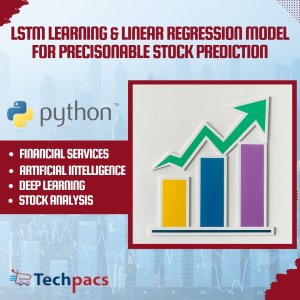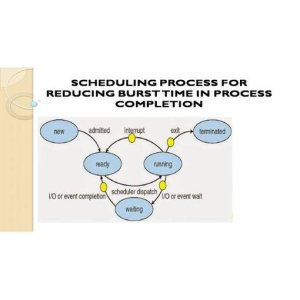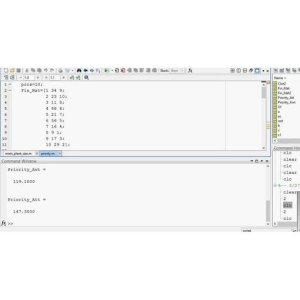Rainfall and Crop Yield Prediction through ANFIS with Multi-Parameter Analysis
Problem Definition
The current state of data mining techniques for rainfall estimation in the agricultural sector reveals limitations in the use of the Naïve Bayes classifier. While Naïve Bayes is effective for classifying binary and linear data, it falls short when handling non-linear datasets, resulting in inaccurate rainfall estimates. Key parameters such as root mean square value, f-measure, precision, and accuracy are used for data classification, yet the RMS value remains largely unchanged with Naïve Bayes. Additionally, the absence of a feature selection technique in the existing method hinders the accuracy and efficiency of data mining processes. As such, there is a clear need for the development of a new data mining technique that addresses the shortcomings of Naïve Bayes and enhances the overall estimation process for rainfall prediction in agriculture.
Objective
The objective is to develop a new data mining technique that overcomes the limitations of the Naïve Bayes classifier in rainfall estimation for agriculture. By implementing the adaptive neuro-fuzzy inference system (ANFIS), the aim is to improve the accuracy of rainfall prediction by considering various factors such as wind direction, wind speed, and temperature. ANFIS is expected to optimize the data mining process, handle non-linear datasets effectively, and provide more reliable results compared to Naïve Bayes. The integration of feature selection techniques in ANFIS also aims to enhance system performance and provide meaningful insights for farmers in the agricultural sector.
Proposed Work
In the proposed work, the research aims to address the limitations of the existing data mining technique, Naïve Bayes, in the estimation of rainfall for agricultural purposes. By introducing ANFIS, an adaptive neuro-fuzzy inference system, the project seeks to improve the accuracy of rainfall prediction by considering factors such as wind direction, wind speed, and temperature. ANFIS utilizes a Sugeno fuzzy model and generates 125 rules based on 5 cases for each parameter to enhance the prediction process. This approach is expected to optimize the data mining process and provide more reliable results compared to the conventional Naïve Bayes classifier.
Moreover, the choice of ANFIS for this project is rationalized by its ability to handle non-linear data sets effectively, which is a limitation of Naïve Bayes.
By utilizing neural network-based fuzzy inference, ANFIS can capture the complex relationships between different weather parameters and improve the accuracy of rainfall estimation. The integration of feature selection techniques in ANFIS also aims to enhance the overall performance of the system and provide more meaningful insights for the end-users, particularly farmers in the agricultural sector. By combining the strengths of neural networks and fuzzy logic, the proposed work seeks to advance the field of data mining for rainfall prediction and contribute to the development of more efficient and reliable forecasting methods.
Application Area for Industry
This project's proposed solutions can be applied in various industrial sectors where accurate rainfall estimation is crucial, such as agriculture, water resource management, and disaster preparedness. In the agricultural sector, the accurate prediction of rainfall can help farmers in making informed decisions regarding crop planning, irrigation scheduling, and pest management. By utilizing the ANFIS model, which considers multiple parameters and generates more precise results than the Naïve Bayes classifier, farmers can benefit from improved accuracy in rainfall estimation. This can lead to higher crop yields, efficient water usage, and overall cost savings for the agricultural industry. Additionally, the application of this project's solutions in water resource management and disaster preparedness sectors can help in better planning and response strategies based on reliable rainfall forecasts, ultimately enhancing operational efficiency and reducing risks in these industries.
Application Area for Academics
The proposed project of using ANFIS for rainfall estimation can greatly enrich academic research in the field of data mining and meteorology. By introducing a new technique to address the limitations of the traditional Naïve Bayes classifier, researchers and students can explore innovative methods for accurate rainfall prediction and analysis.
This project has the potential to enhance education and training in data mining and weather forecasting by providing a hands-on experience with ANFIS algorithms and fuzzy logic systems. Students pursuing MTech or PhD programs can benefit from using the code and literature of this project as a reference for their own research work in related domains.
Furthermore, the application of ANFIS in rainfall estimation can open up new avenues for exploring non-linear data sets and optimizing data mining processes.
The use of fuzzy logic in combination with meteorological variables such as wind direction and speed can lead to more accurate and reliable rainfall predictions, which can be invaluable for agricultural practices and disaster management.
Overall, the proposed project offers a valuable platform for conducting research, implementing simulations, and analyzing data in educational settings. It can pave the way for further advancements in data mining techniques for weather forecasting, with implications for a wide range of research domains and practical applications. The future scope of this project includes exploring the potential of ANFIS in other environmental forecasting models and refining the algorithms for higher accuracy and efficiency.
Algorithms Used
ANFIS is utilized in the project to create an adaptive neuro-fuzzy inference system for predicting total precipitation based on input parameters such as wind direction, wind speed, and temperature. By using a Sugeno fuzzy model, the algorithm generates 125 rules to handle different cases for the parameters. The output of the system is a single value representing the total precipitation, contributing to the project's objectives of accurate weather prediction.
Keywords
SEO-optimized keywords: Rainfall Prediction, Effective Rainfall, ANFIS, Artificial Neural Network, Fuzzy Inference System, Data Mining, Data Prediction, Accuracy Enhancement, Recall, RMS Value, F-Measure, Precision, Decision-Making, Rainfall Estimation, Neural Networks, Fuzzy Logic, Machine Learning, Rainfall Forecasting, Data Analysis, Data Science, Weather Prediction, Rainfall Monitoring, Meteorology, Climate Studies, Environmental Science
SEO Tags
Problem Definition, Data Mining Techniques, Estimation of Rainfall, Agricultural Sector, Naïve Bayes Classifier, Weather Conditions, Binary Data, Linear Data, Non-linear Data, Data Classification, Root Mean Square Value, F-Measure, Precision, Accuracy, Feature Selection, Data Mining Optimization, Proposed Work, Adaptive Neuro-Fuzzy Inference System, ANFIS, Wind Direction, Wind Speed, Temperature, Sugeno Fuzzy Model, Rules Generation, Total Precipitation, Rainfall Prediction, Effective Rainfall, Artificial Neural Network, Fuzzy Inference System, Data Prediction, Accuracy Enhancement, Recall, Decision-Making, Neural Networks, Fuzzy Logic, Machine Learning, Rainfall Forecasting, Data Analysis, Weather Prediction, Rainfall Monitoring, Meteorology, Climate Studies, Environmental Science
| Shipping Cost |
|
No reviews found!


















































No comments found for this product. Be the first to comment!